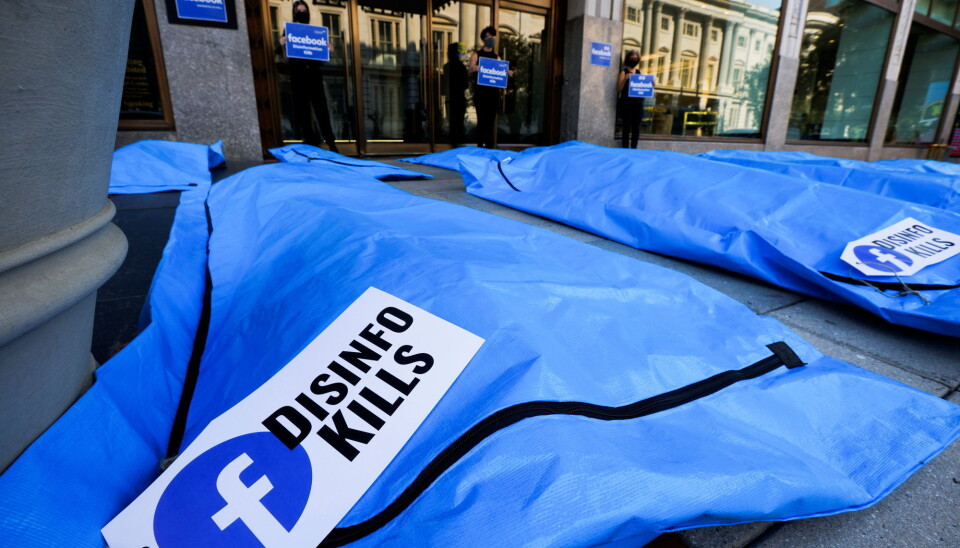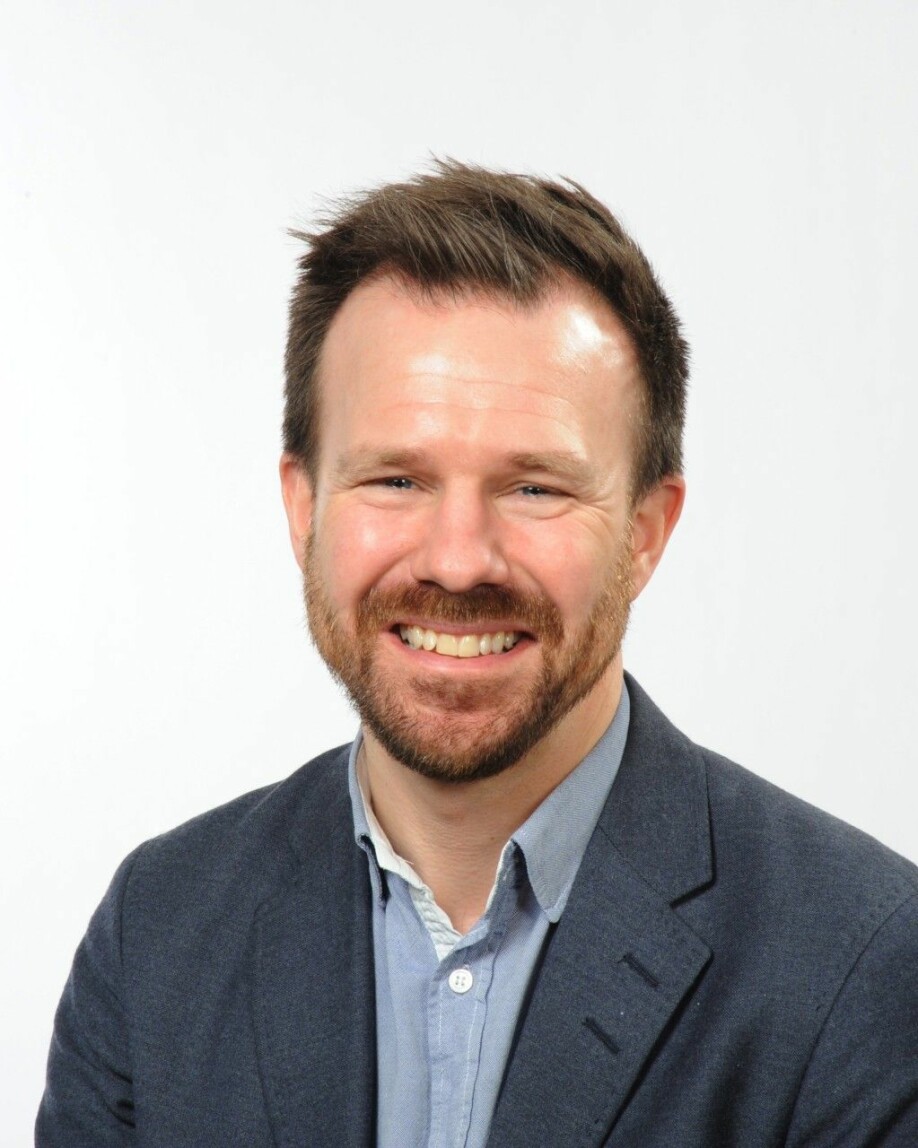
How online lies destroy life and health
Misinformation on social media has consequences for life and health. The Covid pandemic has made it even worse.
Hundreds have died because they drank methanol, detergent or other "miracle cures" that some have claimed can cure coronavirus, according to the BBC. Others set fire to cell phone towers because they believe in conspiracy theories that link 5G technology to the virus, writes businessinsider.com.
The Covid pandemic has made disinformation on social media worse, more visible and more deadly. The World Health Organization, WHO, calls it "infodemia".
“So far, the US presidential election in 2016 has been the highest-profile example of influence through social media. We’ve learned a lot from that about how these operations work,” says Eskil Grendahl Sivertsen.
Creating social division
He is the director of public and government relations at the Norwegian Defence Research Establishment (FFI). He also has experience as an officer with a psychological operations specialization.
Sivertsen refers to the disinformation on social media as "operations." These are not just gullible people who believe in conspiracy theories.
“Influencing people is not illegal. Everyone does it. XXL tries to get you to buy new skiwear, and political parties try to get you to vote for them. But the type of influence we’re talking about here comes from a foreign country and is being used to create benefits for that country’s own goals and to weaken democratic states,” he says.
The point is to create social division. The easiest way to do that is to come up with strong opinions about conflicts that already exist.

The Russian example
“Russia in particular has been very active this way. They look at the conflicts that exist in a country. Then they go at it from each side of the issue and fire people up so there’s more arguing, a worse debate climate and less trust. Trust is at the heart of democratic society. If they manage to erode trust in society, they weaken democracy,” Sivertsen says.
He also points to China, which is consciously working to undermine the United States' credibility and strengthen its own in Southeast Asia.
Influence operations report
FFI has now published a report (summary in English) on how Norwegian society can fight back against unwanted influencing on social media.
“This is a kind of guide to explain influence operations. Its purpose is to give ordinary people in municipalities, the state and companies an understanding of what influence operations are. The topic is often national security focused and a bit removed from daily life,” says Sivertsen.
In the report he looks at Russia and China, and terrorist organizations. He also considers Norwegian politicians, who are also capable of combining "truth, half-truths or untruths in a way that creates an emotionally charged, misleading story designed to create conflict or influence people's understanding of reality."
“Our aim is to help strengthen society's resilience in the face of these complex threats,” says Sivertsen.
More knowledge needed
He believes increased knowledge is what’s needed. It is not enough for the Ministry of Defence and the Ministry of Justice and Public Security to bear responsibility for everything that revolves around threats, according to Sivertsen.
When Russian owners wanted to buy the defence supplier Bergen Engines, the Ministry of Trade, Industry and Fisheries blocked the sale due to national security concerns. But when the Russian Orthodox Church bought Søreide prayer house near Bergen, with a clear view straight to Haakonsvern Naval Base, the main base of the Royal Norwegian Navy, the sale did not land on the Ministry of Defence's desk.
“I won’t assert that this is about anything more than that they need a house of prayer. But someone has to ask the question,” Sivertsen says.
“We need to have centrally located people who have the right skills and especially the digital tools to be able to analyse the enormous amounts of data we’re talking about.
He believes that a positive result of the Covid pandemic is that people have become more aware of disinformation and influence operations.

Direct line to Facebook
Norway’s National Security Authority (NSM) also reports disinformation. In this year's edition of its threat and risk assessments, NSM states that extensive disinformation and influence operations from some countries have been occurring in the wake of the Covid-19 pandemic.
Roar Thon and the National Security Authority have a direct line to Facebook and Twitter in case societal leaders are hacked.
Specialist director Roar Thon relates how NSM has a direct line to Facebook, Instagram, Twitter and other social media platforms in case something serious should happen.
“Social media is an enormous platform for disseminating information – for better or worse. Already in 2017 we established what we call a contingency plan for social media. It’s possible for us to respond quickly, for example if key people get their accounts hacked and taken over by others.
Parliament member hacked
As recently as July, NRK reported how Norwegian Parliament member Anette Trettebergstuen was hacked by someone who sent racist messages from her Twitter account.
“We’ve been concerned about digital sources of information for a long time. If we don’t use good enough source discernment, we risk having sources that will give Norwegians incorrect information in a crisis situation. People could end up making the wrong choice, with disastrous consequences. Another side of the issue is that in a crisis situation we have to spend a lot of resources simply to counteract misinformation,” says Thon.
Translated by Ingrid Nuse
Read the Norwegian version of this article on forskning.no
References:
Eskil Grendahl Sivertsen, Nina Hellum, Arild Bergh and Anne Lise Bjørnstad: Hvordan gjøre samfunnet mer robust mot uønsket påvirkning i sosiale medier (How to make society more resilient to unwanted influences on social media). FFI Report 21/01237, June 2021, ISBN: 978-82-464-3356-1.
Risiko 2021 – helhetlig sikring mot sammensatte trusler. (Risk 2021 – comprehensive security against complex threats). NSM, March 2021.
Md Saiful Islam et al .: COVID-19 – Related Infodemic and Its Impact on Public Health: A Global Social Media Analysis. The American Journal of Tropical Medicine and Hygiene, October 2020, doi: 10.4269/ajtmh.20-0812.































